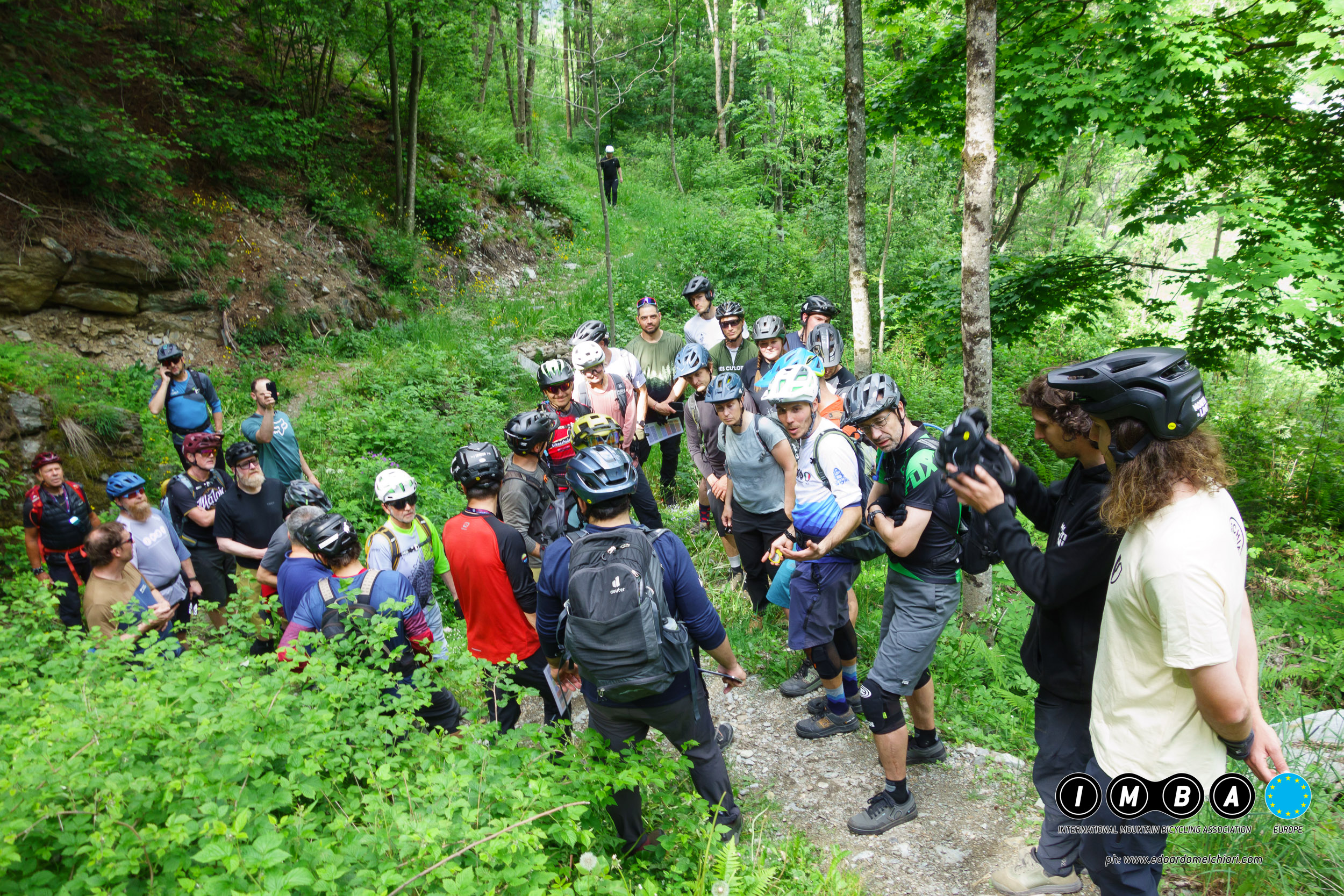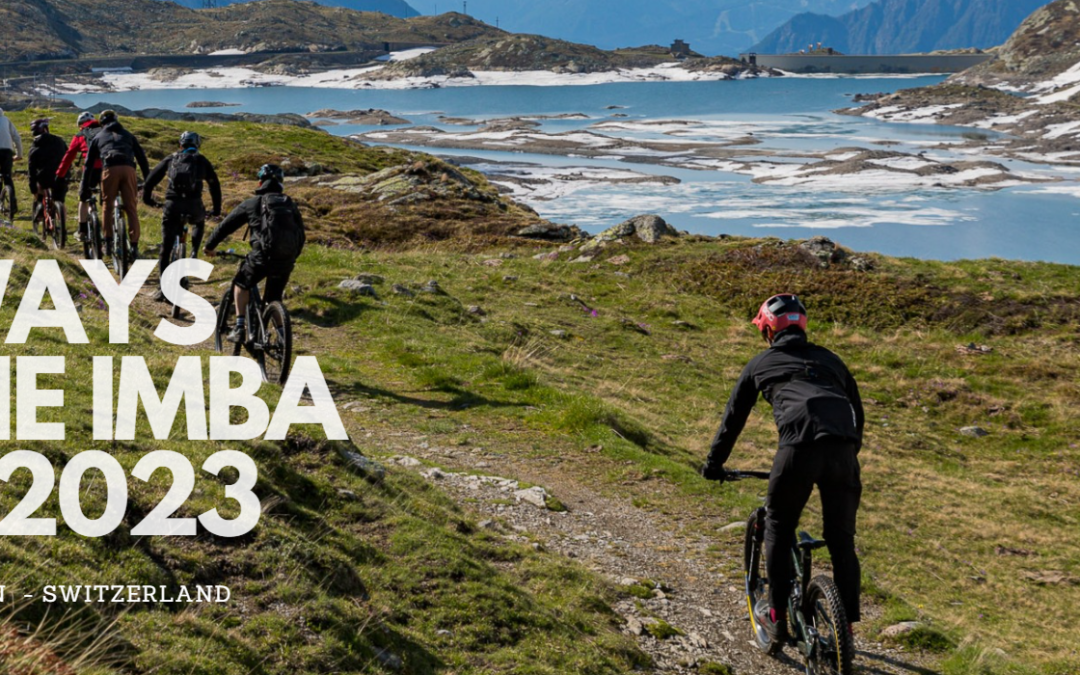The IMBA Europe Summit of 2023, which occurred in Valposchiavo, Switzerland from June 1st to June 3rd, featured approximately 120 participants from 21 different countries. On the first day, the focus was on reevaluating our connection with nature and the pervasive use of the term “sustainability” in all aspects of our actions. This involved examining how various activities such as trail usage, tourist destinations, and rural development can be approached to ensure that they do not harm the environment or detract from the visitor experience. The second day aimed to challenge existing notions of mountain biking and its target audience. Distinguished speakers shared insights on emerging off-road cycling trends, user expectations, and the evolving identity of the “mountain biker.”
Here are the top takeaways from the Summit 23’.

- Rethinking mountain biking advocacy as activism
Vanessa Rueber from Patagonia gave a powerful presentation on how mountain biking can learn how to be better activists using inspiration from other outdoor sports. “You’ve (mountain bikers) got to be more active. You need to find the stories where individuals, communities are causing a positive impact and share those stories. When you learn to love sport and the outdoors, you naturally become an advocate for those spaces”. Equity in responsible access for all kinds of user groups, including MTB, seems to be an important precondition. People are not likely to protect what they can’t perceive. - Industry can help to change the narrative on MTB
The industry can create a more inclusive, diverse, and positive environment for all riders and attract a broader audience to the sport through several actions like: showcase positive community impact; support beginner friendly initiatives but also showcase the intermediate, everyday rider, which is most of the MTB audience but currently somewhat missing in the media landscape; provide educational resources and campaigns to raise awareness about the benefits of MTB, dispel misconceptions and address concerns related to safety and environmental impact, particularly in the case of e-MTB; Showcase efforts to protect and preserve natural spaces, promote responsible riding practices, and support trail maintenance and conservation initiatives. - Embracing the many subcultures of MTB
By embracing inclusivity and diversity in mountain biking, the sport can become more enriching, vibrant, and representative of the broader community. Through acknowledging and embracing the many subcultures or idioculture within the sport it allows for a wider range of perspectives, experiences, and talents to be shared, creating a stronger and more inclusive mountain biking culture for everyone to enjoy. If we want to portray a more inclusive and diverse sport to newcomers, the MTB community needs to promote and share ALL stories and experiences from the many subcultures that exist. - eMTB on the rise
Mountain biking has and continues to experience significant growth and increased popularity in recent years. Keynote speaker April Marschke, Lead of the turbo category at Specialized bikes shared the most current market overview which showed that E-MTB sales have surpassed classic (pedal) MTB bike sales in recent years. E-MTB’s bring the largest number of new riders to the sport while 24% of e-MTB riders cycle less than 2 years. - MTB Tourism
Cycling tourism and with that, mountain bike tourism is on the rise and can benefit local communities and rural development as explained by the UNWTO. Tourism’s potential for mountain ecosystems and communities can be linked to supporting local livelihoods, biodiversity conservation and fostering cultural preservation. As most good practices showed, MTB tourism isn’t just about getting more visitors, it’s about creating better places to live, community health and local business growth. - Trail sustainability reflections
Trail sustainability discussions revolved around various academic and holistic approaches and ranged from very practical insights from Warburton MTB destination about mitigating impacts on trees, waterways and noise, towards the designation of trail corridors to be able to meet rider expectations but with proper planning principles to preserve sensitive flora and fauna. Edinburgh Napier University held a strong pledge for a more holistic approach of sustainability, or better said, regenerative sustainability. Adopt a systems approach which considers the overall health of the wider trail system, local economy, and opportunities for equity. - Community & Advocacy
Although a turning point in mountain bike advocacy is slowly emerging – we’ve gone from rogue to mainstream over 30 years as mentioned during IMBA’s advocacy workshop – it’s time to prove critics that we have earned this position of acceptance in society by positive actions and responsible behaviour. Communities that still face many challenges are the ones in metropolitan areas where natural spaces are scarce and contested between various user groups combined with ambitious nature conservation and restoration objectives. A data driven approach is needed to understand the real issues instead of perceived ones. How many people use recreational trails versus how much infrastructure is accessible for this group. Communication and stakeholder involvement is key, as much as to communicate with empathy. The role of local trail associations is to offer solutions, but they can’t be held responsible for negative actions caused by a small number of individuals.

